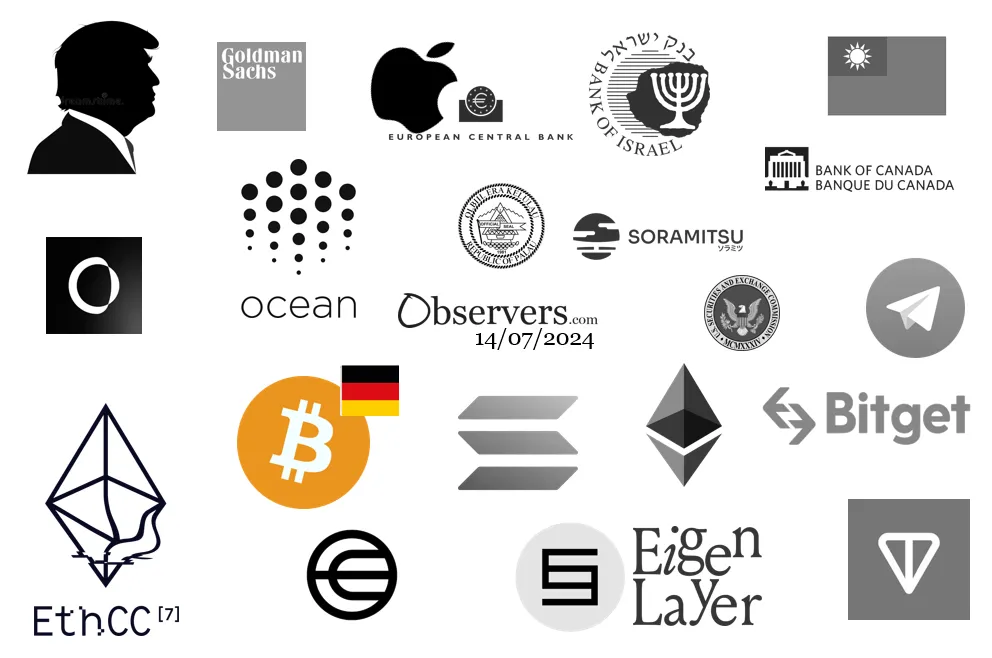
Beware of the fake news - disinformation experts warn. The web is flooded with incorrect information and conspiracy theories following the assassination attempt of former U.S. President Donald Trump at a rally in Pennsylvania this Saturday.
With both left and right weaponizing the incident for political gain, information experts have alerted social media users about deep fake images and AI-generated "proofs," suggesting that they consult several information sources before reaching conclusions.
While the internet's immediacy has simplified many aspects of everyday life, including information availability, it has also allowed bad actors to exploit technology to advance their agendas.
Users aren't totally innocent, as they often share rumors and spread stories that haven't been told in full or confirmed by the right sources.
Disinformation cycles are also extremely common on crypto Twitter. This week, for example, several conspiracy theories arose, and the German government was insulted for selling seized Bitcoins.
The negative market sentiment generated by the news, which further pushed the currency's price down, could have been avoided if users had paid attention to the information on how the country's laws don't allow many other sale options.
Numeraire and Ocean Protocol's Predictor have joined forces to improve crypto price prediction models. While unable to foresee abrupt dumps like the one from German authorities, Numeraire's experience in machine-learning models that forecast stock market trends is bound to bring some peace to crypto investors' tumultuous lives.
With the prices of BTC and the most important altcoins down for most of the week, crypto investors had a tough last couple of days. Still, they continued to show excitement over spot ETH ETFs in the U.S., as they are expected to hit the market soon.
From crypto investors to ecosystem developers, everybody seems excited about the future. This week, one of the most important Ethereum conferences happened in Belgium, the Ethereum Community Conference in Brussels, and despite the violent robberies targeting attendees, the conference's balance is still highly positive.
While Worldcoin might soon be considered illegal in the EU, the proof-of-personhood crypto project still presented a developer preview of the upcoming L1 Worldchain at EthCC.
Ton Applications Chain (TAC) was also at the conference. The project was there to introduce the first layer-two built on top of TON, which will be EVM-compatible, allowing developers to create apps for both ecosystems.
TON is tirelessly striving to become one of the leading blockchain ecosystems. Recognizing its potential, Bitget Wallet launched on Monday "TONNECT 2024," a one-month event with AMAs, contests, and a $1,000,000 prize pool to incentivize the use of the network.
With growth comes danger. There have been an increasing number of reports about new users of the blockchain, who interact with it through Telegram games and mini-apps, being scammed with fake channels, fake admin and tech-support accounts, and pump-and-dump schemes.
Like Ethereum and Ton, Solana is also pushing Web3 adoption forward. The recent launch of Blinks, a feature allowing users to engage with the blockchain from any browser, is believed to be Solana's YouTube moment and to have brought thousands of users into crypto.
For those already in crypto, options to expand their portfolio keep getting better.
Usual protocol recently introduced USD0, a stablecoin that promises to "give back the power to the users" by giving $USUAL token holders a say in the currency's revenue distribution rather than distributing it to a limited number of shareholders.
Restaking services are also becoming quite popular. In less than a month, Symbiotic's total value locked (TVL) surpassed $1 billion. Thanks to Lido's support, the platform is getting close to surpassing restacking market leader EigenLayer.
As more people adopt crypto and as users in the ecosystem become more resourceful, financial, and technology-wise, the anti-crypto agenda of the U.S. Securities and Exchange Commission will become harder to defend.
While the U.S. fights its inner money demons, governments around the world keep exploring how to adapt their economies to new money realities. On Observers' Banking and CBDC Weekend Roundup, we look at new studies on CBDCs, explore how different countries are handling the matter, and discuss how blockchain can improve the nature of financial markets in small communities.

